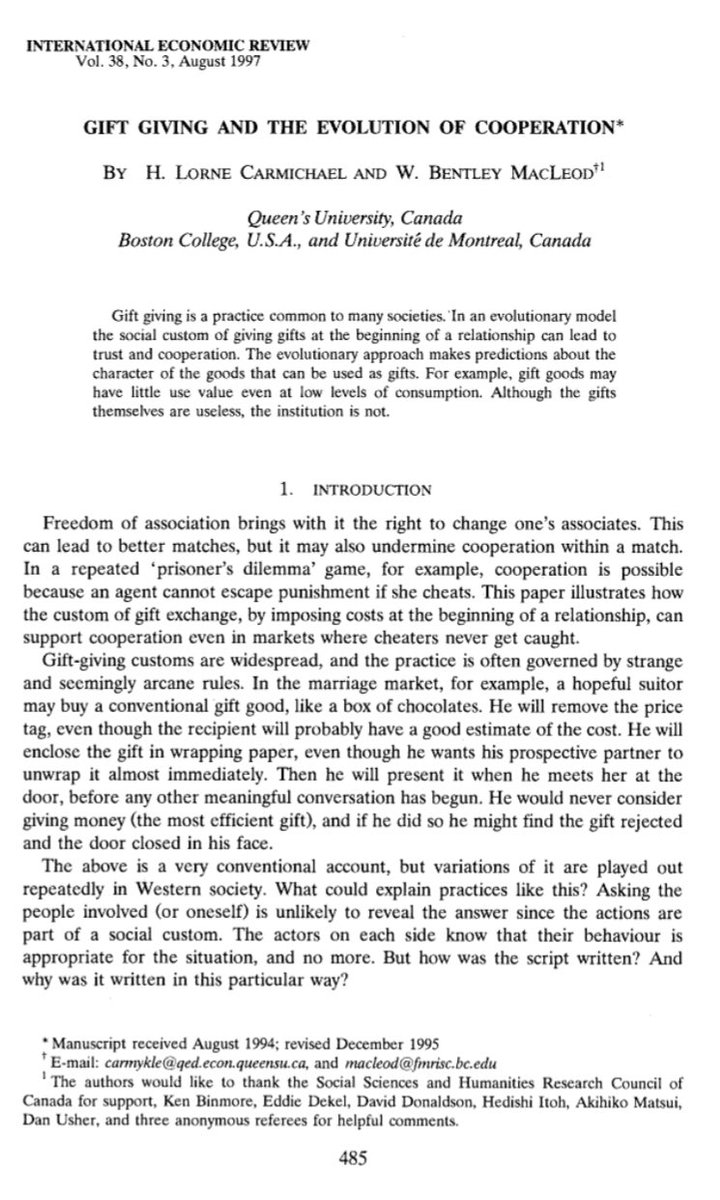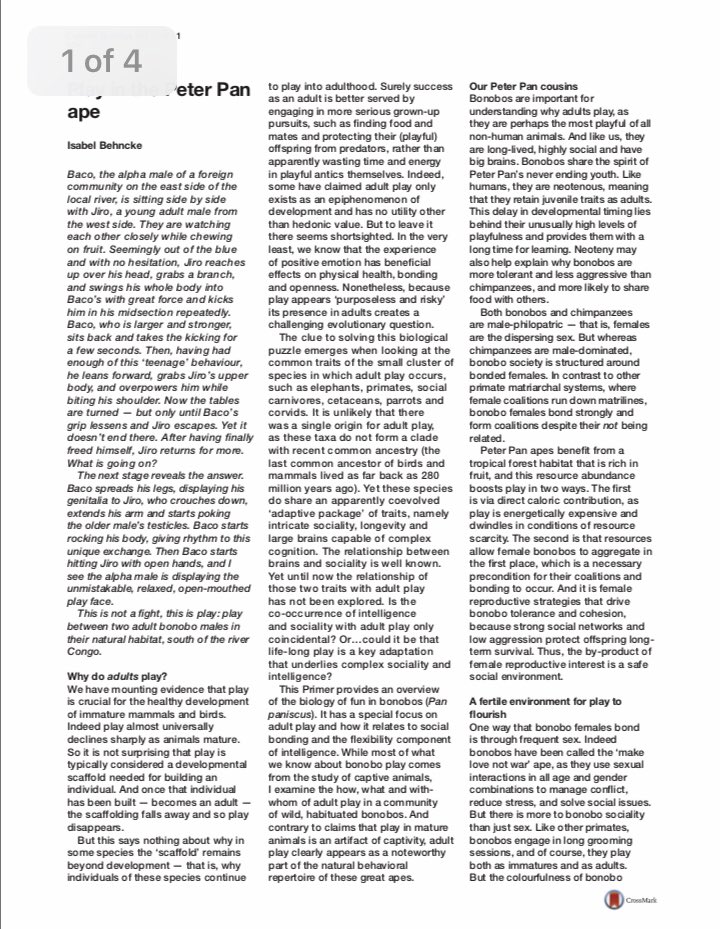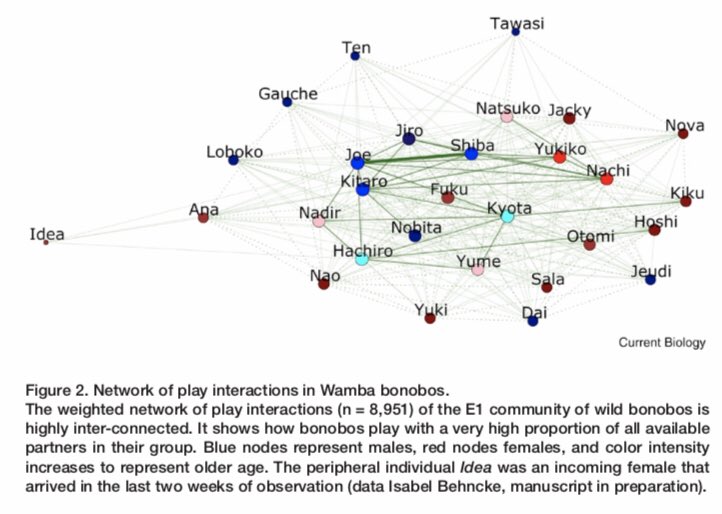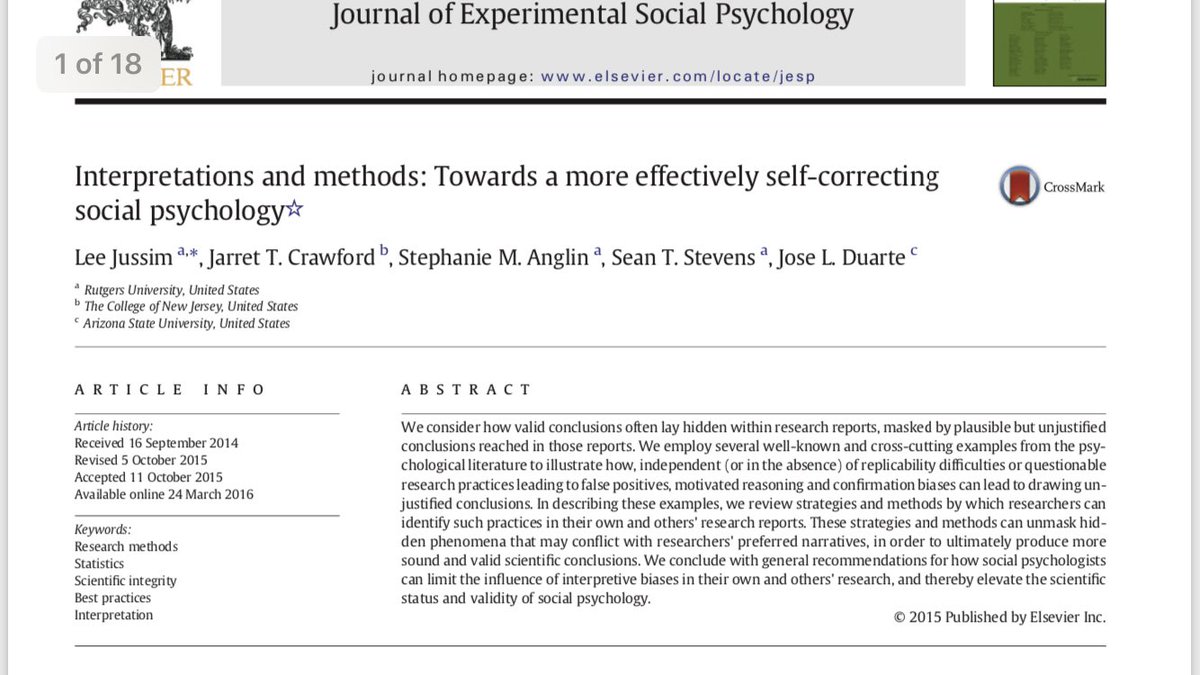
Lecturer @HarvardEcon, Independent Scholar. Tweets on: peculiarities of human social behavior + (subtle) incentives at play.
3 subscribers
How to get URL link on X (Twitter) App

https://twitter.com/Moshe_Hoffman/status/1526893031416377350(Here’s another thread laying out additional problems w/ proximate explanations.)
https://twitter.com/Moshe_Hoffman/status/1167288599735361536

https://twitter.com/naturehumbehav/status/1315699744514158592By ‘proximate’ we just mean an explanation in terms of our psychology. An explanation of what we do in terms of what we think, feel, or want.
https://twitter.com/scholars_stage/status/12153604281689948171) incentives don’t just shape our conscious strategic behaviors, but also which ideas we generate, spread, and come to believe.
https://twitter.com/Moshe_Hoffman/status/1073270050809937923?s=20

 Some puzzles the model helps explain:
Some puzzles the model helps explain:


 The key point:
The key point: 
 One of the key incentives at play was most definitely the ability to loot. Both $ & jobs. Given to Germans, the Nazi leadership. And their allies. $ and jobs especially valued in time of depression. And war.
One of the key incentives at play was most definitely the ability to loot. Both $ & jobs. Given to Germans, the Nazi leadership. And their allies. $ and jobs especially valued in time of depression. And war.https://twitter.com/page_eco/status/1137004785939361792One reason might be misleading:

https://twitter.com/DorsaAmir/status/1085227486869377024(Note to social scientists:
https://twitter.com/DinaPomeranz/status/1084881496459132929(Thus replicability issue doesn’t say *much* about the individual (albeit is clearly a moral hazard component and individual differences to susceptibility therein), but about problems w/ institutional incentives+human nature.)
https://twitter.com/tage_rai/status/1083850526922629122Whereas a functional/evolutionary approach to relationships (what is done in my literature) would do something similar